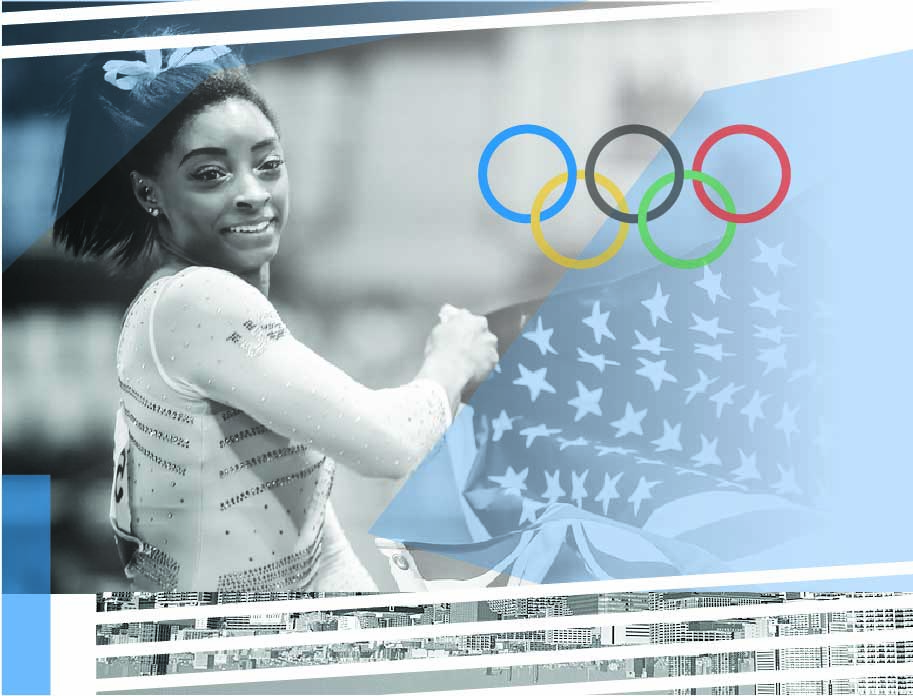
Dr J. Simon Rofe
Reader in Diplomatic and International Studies at SOAS University of London. Simon co-founded the field of Sports Diplomacy, through his scholarship, working with key stakeholders: most notably practitioners. He is the author and editor of a numerous books and articles including: Sport and Diplomacy: Games within Games.
Twitter: @drjsimonrofe

Section 1: Tokyo & Mega-Events
- Public relations as the key in the 2020 Tokyo Olympic and Paralympic Games
- Tokyo 2020, East Asian geopolitics and Olympic diplomacy
- Anti-sex beds? Fake news! : why this video went massively viral?
- Power sharing: Olympic sponsorship and the athlete’s personal brand
- The Tokyo 2020 Organizing Committee’s veil of effective public relations to help save itself and the start of the Games
- Host city and mega-events: Olympic legacy in Japan
- The rise of critical consciousness in Japan: An intangible and unintended legacy of the Tokyo 2020 Olympic Games
- Tokyo 2020 Olympic Games, nationalism, identity and soft power
- The typhoon games
- Environmental leadership showcased in the Olympic Games
- Simone Biles and prioritizing athlete well-being
- How the female athletes of the Tokyo Olympics are reframing the way we think about motherhood
- Deliver a medal or apologize: A daunting task imposed on Japanese Olympians
- What happened to Rule 40 at Tokyo 2020?
- Cultural programming at Tokyo 2020: the impossible Olympic festival city?
- A green Olympic legacy for future generations?
- Lessons from Tokyo: the impact of the Paralympics in Japan
- Let’s play! Inspiring an inclusive mindset with a hands-on Paralympic experience for children and teenagers in Japan.
- The Olympic & Paralympic sponsorship without category exclusivity: Background of sponsorship exclusivity in Olympic and Paralympic Games (OPG)
- Counting cases, counting medals: Containing the Olympic contagion during the Tokyo Games
- The Olympic Games and ambush marketing via social media
- Pride and burden of striving for perfection at the Olympics
The Tokyo 2020 Summer Olympics Games was a Sport Mega Event (SME) like no other. The tensions evident in holding the world’s largest sporting event in one of the world’s most densely populated cities in the age of Covid raises pointed questions with respect to the values of hosting SME’s. Jules Boykoff’s NOlympians ably demonstrates historical and contemporary opposition to Olympic hosting https://cup.columbia.edu/book/nolympians/9781773632766 Nonetheless, the benefits of hosting SME’s – promoted by the IOC and other governing bodies in sport – are often considered in terms of the perceived soft power benefits that accrue to the hosts. Soft power – the power of attraction and trust in relations amongst different polities, is a much debated term, but one that has proved remarkably durable since it was first coined by scholar Joseph Nye Jr in the early 1990s. Supposed soft power benefits have been typically measured in terms of visitor numbers to a city, hotel beds filled, cultural exchange events, and tickets sold to the games themselves, alongside increased GDP – a harder power measure. Covid corrupted these criteria. The impact on the athletes and administrators was huge – medals were ultimately won and lost on the basis of what the impact a year’s delay meant to athletic performance. Similarly, the impact on the hosts affords an opportunity to reappraise a soft power typography for hosting SMEs away from previous attempts to classify soft power success in terms of physical footfall – tickets sales et al. The soft power impact of Tokyo 2020 needs to be considered in its own right.
The first aspect of Tokyo which needs to be stated plainly is that the Olympic Games took place. This is no little achievement as a huge range of sporting events have since March 2020 been severely impacted by COVID; season declared null and void, postponements a plenty, and witness during the Games themselves the postponement of the UK’s hosting of the Rugby League World Cup 2021, after the two leading nations pulled out over Covid concerns. In Tokyo the Games took place; and did so without huge controversies – the event was not a super spreader of Covid itself; demonstrating competence gets a large tick in any soft power typography. It serves to reinforce rather than revolutionise: an important dimension of soft power – it is about accrual. Japan’s reputation of past hosting success stretching back to Tokyo’s hosting of the 1964 Summer Games – a postwar coming out party, through success in hosting the Winter Games of Sapporo 1972 and Nagano 1998, co-hosting the 2002 World Cup with South Korea, and then the 2019 Rugby World Cup, meant Japan had soft power capital to ‘spend’ in working through Covid’s challenges
Beyond that, the soft power impacts of Tokyo 2020 are less clear. Simon Anholt, founder of the Good Country Index https://www.goodcountry.org/, warns of the transient effect of hosting SMEs but recognises the ‘Olympics can mean something as part of a bigger plan’. For host committee in Tokyo, and Japanese society more broadly, the opportunity for the world’s gaze to rest on their city was particularly important as part of the nation’s recover from the devastating effects of the March 11th 2011 earthquake and tsunami which triggered the Fukushima nuclear meltdown. The ‘bigger plan’ was therefore to demonstrate Japan’s competencies to recover and sit amongst the world’s top nations which the successful dénouement of the games on 8th August demonstrated. Under Prime Minister Shinzo Abe 2012-2019 brand Japan, modelled on the United Kingdom’s GREAT campaign
https://www.gov.uk/government/news/refreshed-great-campaign-launched-in-145-countries, made the most of local cultural capital with Hello Kitty, tea ceremonies, technological innovation and the antecedent of martial arts shared broadly. That Japan had established these tropes amongst overseas audiences long before Covid compensated in those minds’ Japanese values in the absence concentrated cultural exchange that would typically coincide with the Games themselves.
Relatedly, and most obviously to the digital viewer of the Games was a lack of spectators in the stadia; and many of them would have been overseas visitors. Their absence prevented the most telling cultural exchanges that travel provides – what Kadir Ayhan – captures as ‘people to people diplomacy’ https://uscpublicdiplomacy.org/blog/typology-people-people-diplomacy These absences extended to athletes, journalists and administrators, who did not have the opportunity to mingle with locals, or each other, as they lived in hermetically sealed bubbles before flying home. The lack of freedom meant they were fewer interactions and opportunities for cultural exchange and for Japanese soft power to be earnt and shared. Nonetheless, iconic symbols of Japan were skilfully woven into the Games narrative: Hokusai’s Great Wave being incorporated into fences at the show jumping, for example.
Equally, it is important to note that not all soft power enhances its subject: is hard to gauge any meaningful progress on Japanese gender politics, because of Tokyo’s hosting, though history may look back on the removal of Yoshiro Mori as head of the organising committee for remarks about women as a significant step in greater gender equality.
What can be said of Tokyo 2020 in its immediate aftermath is that it is clear demonstration of Sports Diplomacy – the ‘strategic use of sport to build relationships and amplify profile, policy and attractiveness as a place to invest or study in, trade with, or visit’ Murray and Price https://wales.britishcouncil.org/sites/default/files/towards_a_welsh_sports_diplomacy_strategy_0.pdf All of these dimensions were compromised by Covid for hosts in Tokyo, and therefore require a re-evaluation of the soft power of hosting sports mega events.

